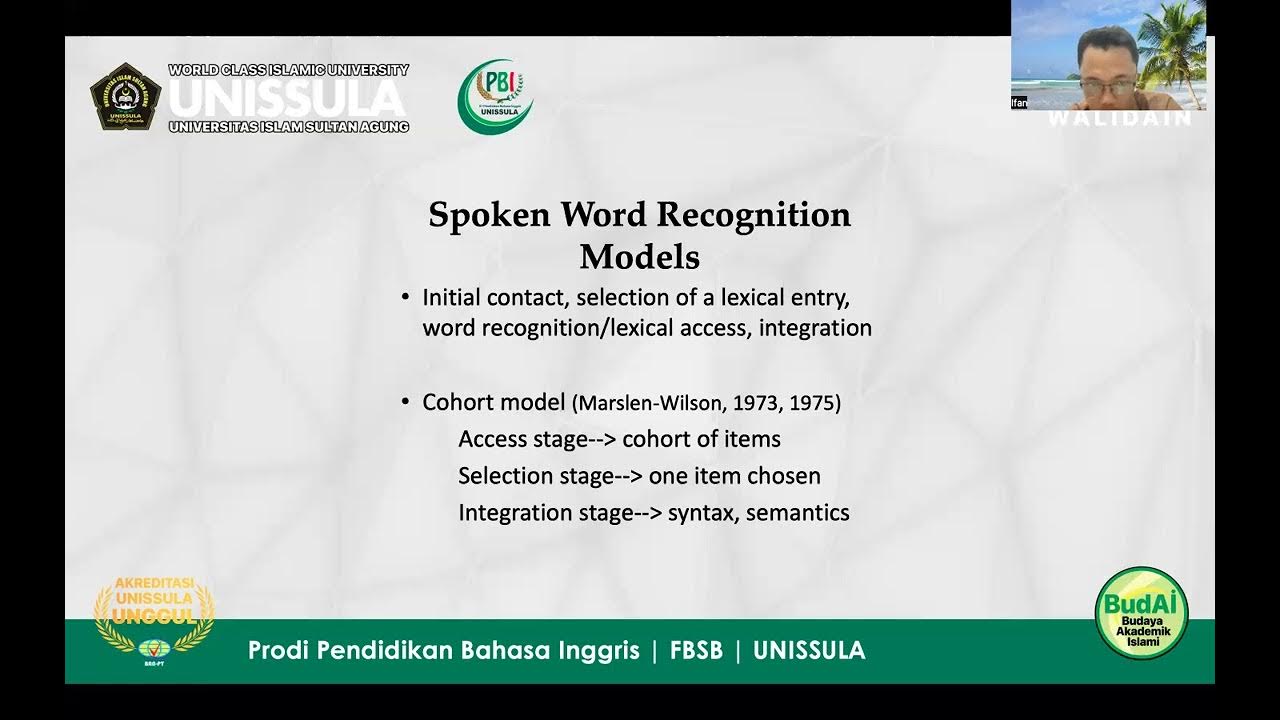Language Learning vs. Language Acquisition
Summary
TLDRThis video explores the differences between language learning and language acquisition, highlighting how adults can effectively approach mastering a new language. Language learning is structured, focusing on grammar, vocabulary, and rules, while language acquisition emphasizes natural exposure and communication, similar to how babies learn. Adults benefit from combining both approaches, using structured study to clarify complex concepts and immersive experiences to develop intuition and fluency. Practical tips include engaging with media in the target language, using apps that blend learning and acquisition, and leveraging curiosity to guide progress. The key takeaway is that a balanced approach maximizes both understanding and enjoyment in language learning.
Takeaways
- 🧠 Language learning and language acquisition are related but distinct processes.
- 📚 Language learning is structured, focusing on grammar, vocabulary, and rules.
- 🎧 Language acquisition emphasizes natural exposure through listening, reading, and speaking.
- 👶 Children naturally acquire language through repeated exposure and intrinsic motivation.
- 👨🏫 Adults can leverage structured learning to compare the new language with their native language.
- ⏱️ Short, focused study sessions are more effective for retention than long, intensive cramming.
- 📺 Immersive experiences like watching shows or listening to podcasts enhance language acquisition.
- 🔄 Combining structured learning with acquisition strategies provides the best results.
- 🧩 Certain language concepts may benefit more from structured learning, while others from exposure.
- 🌍 Engaging with native speakers and real-life conversations accelerates language acquisition.
- 💡 Motivation and curiosity are key drivers for successful language learning.
- 📱 Modern tools like apps, online classes, and YouTube make immersion and acquisition more accessible.
Q & A
What is the main difference between language learning and language acquisition?
-Language learning is a structured process focusing on mastering grammar rules, vocabulary, and sentence structure, often in a classroom or study setting. Language acquisition, on the other hand, emphasizes natural exposure and communication, where understanding develops through repeated hearing, seeing, and using the language.
Why do many people confuse language learning and language acquisition?
-The terms are often used interchangeably because they overlap significantly, especially for adult learners. Both involve exposure to and understanding of a language, but they differ in approach and focus.
What are some limitations of structured language learning?
-Structured learning can be boring for some students, and motivation is crucial for success. Additionally, learners can only memorize a limited amount at a time, and cramming large amounts of vocabulary or grammar rules is less effective than spaced study sessions.
How does language acquisition mimic the way babies learn language?
-Language acquisition involves learning through repeated exposure and intrinsic motivation, similar to how babies pick up their first language by hearing and interacting with their caregivers repeatedly over time.
Why is immersion important in language acquisition?
-Immersion provides extensive exposure to the target language in real contexts, helping learners develop instincts for correct usage and natural communication patterns, which is crucial for effective acquisition.
What advantages do adult learners have over babies in language learning?
-Adults can consciously compare their target language to their native language, which helps them understand and apply linguistic structures more efficiently, even if their brains are less malleable than babies' brains.
How can learners combine language learning and acquisition effectively?
-By using structured learning for challenging concepts while also exposing themselves to the language through media, conversations, and immersion, learners can leverage both methods to deepen understanding and retention.
Can exposure alone fully replace structured learning?
-No, exposure (acquisition) is crucial for developing natural language instincts, but structured learning can supplement it by clarifying complex grammar rules or difficult concepts that exposure alone may not make clear.
How do different learning methods affect the brain?
-Research shows that different areas of the brain are activated depending on whether a learner is using structured learning or acquisition-based exposure. This suggests that certain concepts may be better learned with one method over the other.
What modern tools can help with language acquisition for adults?
-Online classes, podcasts, music, TV shows, and YouTube content in the target language are excellent tools for immersive exposure, allowing learners to experience real-life usage and develop instincts for communication.
Why might learners shift between learning and acquisition methods?
-When learners struggle with a specific concept, they may benefit from active, structured learning to understand it better, while continuing to rely on acquisition for natural communication skills. Balancing both approaches leads to more effective language mastery.
Outlines

Cette section est réservée aux utilisateurs payants. Améliorez votre compte pour accéder à cette section.
Améliorer maintenantMindmap

Cette section est réservée aux utilisateurs payants. Améliorez votre compte pour accéder à cette section.
Améliorer maintenantKeywords

Cette section est réservée aux utilisateurs payants. Améliorez votre compte pour accéder à cette section.
Améliorer maintenantHighlights

Cette section est réservée aux utilisateurs payants. Améliorez votre compte pour accéder à cette section.
Améliorer maintenantTranscripts

Cette section est réservée aux utilisateurs payants. Améliorez votre compte pour accéder à cette section.
Améliorer maintenantVoir Plus de Vidéos Connexes

Considerations in Language Acquisition

How to Learn Grammar: The Only Method You'll Ever Need

TEAL_2 Understanding Language Acquisition

Language Acquisition and Language Learning in ELT | Definition & Difference | MA/ Ba/ NET #pedagogy

PLANO DE ESTUDOS PARA APRENDER UM IDIOMA SOZINHO

THE NATURE OF LANGUAGE
5.0 / 5 (0 votes)
